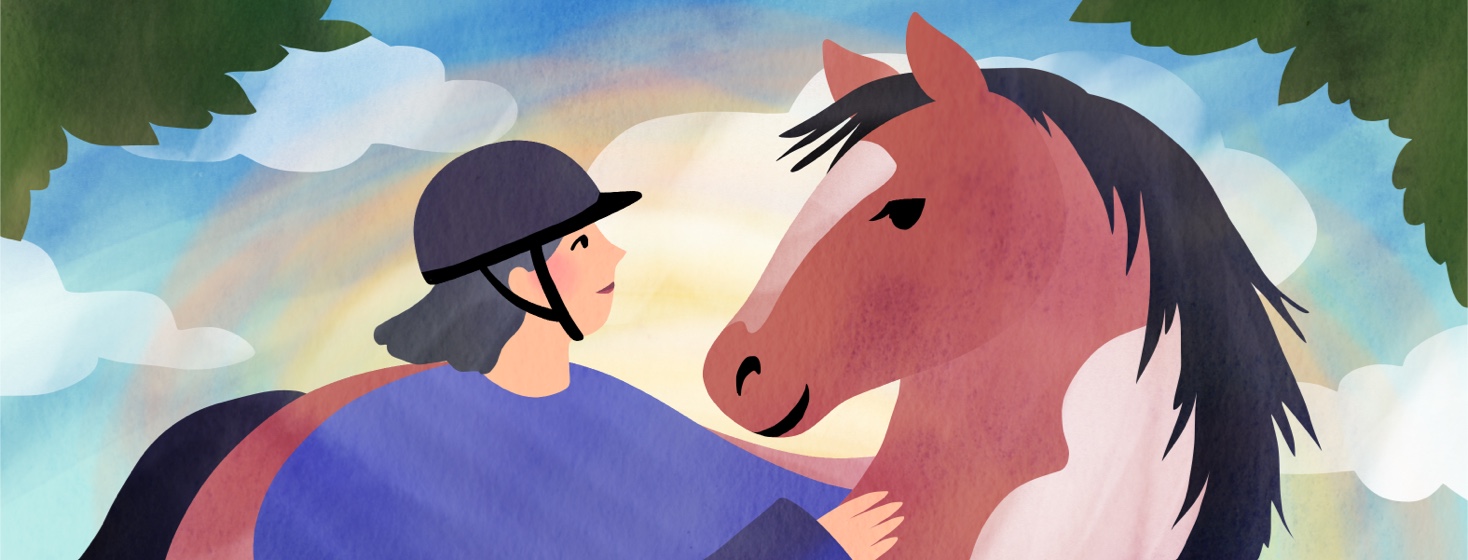Horses Helping Rare Diseases: Equine-Assisted Therapies
December 13th celebrates National Day of the Horse in the United States. On this day, people are encouraged to honor the economic, historical, and cultural contributions that horses have made. This includes celebrating the human-equine bond and equine-assisted therapies.
My connection to horses
I jokingly admit that I never grew out of my "horse girl" phase. I first discovered horses at our local park's pony ride. I then attended summer camps and year-round riding lessons. As someone born with a rare disease that sometimes makes communication challenging, I can see now that I was drawn to learning to "speak" to the horses I interacted with without saying a word.
What are equine-assisted therapies?
I have been lucky to continue to ride horses throughout my life. I currently ride a wonderful chestnut mare to compete at a local show in the para-dressage division for riders with physical disabilities. For me, horses are a combination of physical and emotional therapy.
As I grew up in the horse world and learned from my trainers and other riders, I learned about equine-assisted therapy. Horses can offer physical, psychological, and socio-emotional therapy for people with rare diseases in the following ways.
Adaptive horseback riding
Adaptive riding is more traditional horseback riding lessons adapted for the unique needs of individuals with various physical, developmental, and psychological needs.
In addition to learning the basics of horseback riding, such as steering and riding various gaits, such as the walk and trot, adaptive riders might work on other academic and developmental skills in the saddle by playing games. Adaptive riding lessons can be private or in a group format.
Hippotherapy
Hippotherapy is physical therapy on horseback conducted by a physical therapist. The motion of a horse simulates the motion of walking and can help activate muscles not used by individuals who cannot independently walk.1
Hippotherapy uses volunteers who lead the horse and who support the rider on the horse. Instead of a more traditional saddle, hippotherapy often uses a surcingle and saddle pad. Hippotherapy can sometimes be covered by health insurance as physical therapy.
Equine-facilitated psychotherapy
Equine-facilitated psychotherapy is mental health treatment by a certified practitioner who uses horses and horse handling as a mental health treatment modality for people of all ages experiencing emotional and mental health challenges.2
The horses act as a mirror of their handler's emotions, and seeing that in action enables individuals to delve deeper into their feelings. Equine-facilitated mental health treatment can also sometimes be covered by health insurance as psychotherapy.
Horses can help those with rare diseases
These 3 ways horses can help people living with rare diseases are just the beginning! People with rare diseases and other chronic conditions ride at local stables and in lesson programs, adapting as they go along.
Many Paralympic dressage competitors, the pinnacle of disabled sport, ride with a variety of rare diseases. And those with rare diseases give back to their communities by volunteering at their local therapeutic riding barns, nurturing the next generation of riders.
Horses are a powerful motivator for living my life with a rare disease, and National Day of the Horse allows us to celebrate what these animals do.

Join the conversation